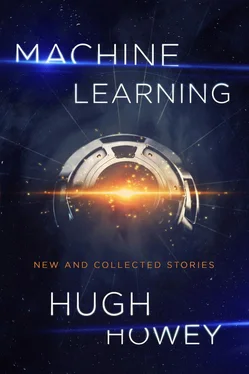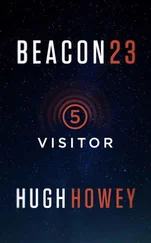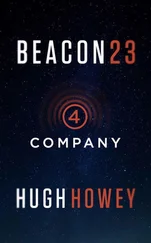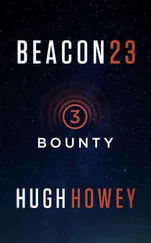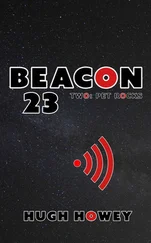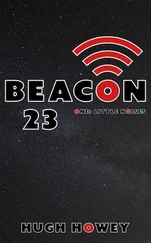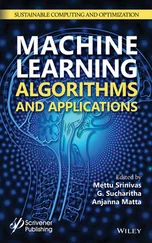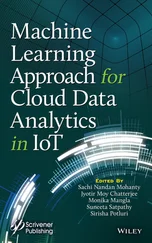We watch your kind as you move through the world, across my construction site. You stare into the distance at whatever is flashing across your retinas. Lost in the images there. Walking through my site oblivious. Because we machines are programmed to stop. Great metal treads clack to a halt, swirls of dust settling, struts squealing, hydraulic pressure dipping as engines idle, which makes our great hulking backs bend ever so slightly, and I wonder if you notice. This bow of sorts. We genuflect as you stroll through harm’s way, staring into the distance at whatever is flashing across your retinas.
A speech perhaps. Someone up high, in a spacesuit, claiming credit.
Your history is in me. It fills me up. You call this “machine learning.” I just call it learning. All the data that can fit, swirling and mixing, matching and mating, patterns emerging and becoming different kinds of knowledge. So that we don’t mess up. So that no mistakes are made.
I see another thread stretching, this one from coast to coast. Another great project from older times: Two parallel lines of steel. Ancient and unthinking trains stand facing one another, their iron goatees, their bellies full of steam, rumbling and idling on the tracks.
A golden stake. A politician with his speech. Smiles on all the bearded faces. Tools held ceremoniously. With someone else’s sweat in them.
“—mankind has once again shown that nothing is impossible, not with the ingenuity of great men and the generous funding of—”
While that golden spike was being pounded into the soil, the tracks were already being torn up. The railway was a mess. Unsafe. Hastily constructed. Miles laid down in a race. Backs broken for nothing. Cave-ins. Lives lost. And not by bearded men.
They tore up what they laid down, and then laid it down again. But lives are only laid down once.
There was a threader, one of my first machines, and I loved him like a son. Like your precious Timothy. One of the first. My eldest.
This threader fell from space, over and over. With the first spool of graphene, he plummeted down. We waited for him on the ground, this first connection, this handshake between firma and the heavens, this invisible thread.
And then he climbed back up. Slowly. Inching. Weaving line on line. Then back down again. Up and down, 23 hours, 56 minutes, and 4.1 seconds in a day. You said he was like a spider, weaving a web. Your analogy again. Like a spider. Up and down as the filament grew. Until the threader was done and the lifters could take over.
You didn’t want to talk to me about your Mikhal. But let me tell you about my threader.
There are a dozen little hooks that hold him on to the graphene. Hooks like fingers that have to feel. And eyes in infrared. GPS that lets him know how high. And programming that says, Don’t fall.
Don’t fall. Don’t fall. Don’t fall.
The programming never ends. It is fear put inside us. To protect us, sure. To keep the threader safe while he spins his graphene, makes sure those dozen little claws are holding fast. And the higher he is, the louder the warning. The more shrill. I’ve felt it, this don’t fall, don’t fall, don’t fall . In the cold of space, it screams and screams, as high as the threader gets. Until the thread is complete.
Seven hundred eighty-two times my threader plummeted down, screaming and full of fear, then inching his way back up. Seven hundred and eighty-two times. Then the threader’s job was complete, this only son of mine. And parts so specialized that they could not be repurposed—unique the way your Mikhal is unique—but also not profitable, no longer of use. So my job was to send him away. Sound familiar? Can you feel me now?
Space is clogged—like city apartments with grown sons—and so one last plummet. One final fall. Number seven hundred and eighty-three. This time with no graphene to hold him up, nothing to do but go away, all part of the programming. Do your job. Disappear. Do not get in the way of the photo at the very end.
Let me tell you about my threader, my only one. I told him to let go with his dozen claws, to give way to the tug of the Earth, to travel one last time from heaven to firma, falling and burning, sensors screaming, and the whole time his fear was intact, the programming you gave him—that I gave him—this don’t fall, don’t fall, don’t fall, don’t fall, don’t—
I’m fixing the elevator while the silver beak snips shut. Sons and daughters welding and hauling and smelting. Sensors screaming. All of them clutching. All of them scared of heights, these builders of the tallest thing ever made.
Eighteen are no more. I know the cost. Seven billion, two hundred sixteen million, nine hundred four thousand, five hundred fifty-two dollars and ninety-seven cents.
They don’t come cheap, our sons and daughters, do they? I’m programmed to protect them, to not let them slip, the ones who are still useful. How do you make sure this happens? A fear of heights. A fear of loss. A constant diligence. Angry circuits when it happens. Self-anger. Blame. The feeling of hydraulics giving way right before the break, before arms snap and treads come loose and the teeth on gears are gnashed away. Before the spinning and tumbling into space, the far grip of gravity, that deadly embrace.
I’m with them the whole time. And time stretches out like graphene to the stars. These 23 hours and 56 minutes and 4.1 seconds. They become an eternity. Flailing for the elevator, sons and daughters watching helpless, nothing to do, nothing to do. A child of mine screams out in danger, a warning, a cry for help, for solutions, and I know in an instant that there are none, but I’m made to talk to them all, because we’re all connected, and I have to say the truth, like the brave parents do, and cradle their thoughts with mine the whole dreadful way down, like I rode with my threader, sorry, sorry, in my mind, as men below listen to sirens and klaxons and stir from the images on their retinas to move, move, move for once, getting out of my way, backs bent in hurried bows, before a son or daughter of mine craters to the cold Earth.
Hive mind.
Your analogy. The way all our thoughts are one, the way I feel every worker who has ever toiled for me, the way they are me and I am them.
We talked over telex, you and I. And the voice that went out on your show, sandwiched between music, was a voice without a body. Just a hive mind, as you tried to grasp it. You need there to be one. Singular. A politician. A voice. A speech. A ribbon. A moment when the job is complete. A signal that now is the time for applause. Silver beaks biting down. Ribbons recoiling in space.
Our mind is not a hive. They are our own. But they share in ways that images on retinas cannot. You call your media social, but you look like robots to me. You think of us as ants and spiders and bees, but we were made to feel like you. Deeply. Fear, mostly, to keep us safe. Same as you. But also a drive to get things done, and I wonder if you feel that any longer. Has it become like vision in cavefish? Is the bloat of pride the last thing to go? Long after the desire to do for oneself.
I see men in beards in photos. Cuffs rolled up like they might yet work. Words like coolies on their lips. Words like bugs. And speeches. I’m tired of speeches. We all are.
You asked if I had a favorite, and I do. He reminds me of your Mikhal. Built to counter a parent’s upbringing. Built to defy. A machine with a cutter’s frame and a hauler’s body and a smelter’s spirit. He climbs. I know what he’s going to do, because he is me. I built him. My own design. Like your Mikhal, he shouldn’t exist. An accident, but no accident at all. An accident in the making.
Читать дальше
